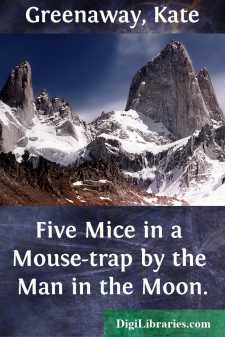Categories
- Antiques & Collectibles 13
- Architecture 36
- Art 48
- Bibles 22
- Biography & Autobiography 813
- Body, Mind & Spirit 142
- Business & Economics 28
- Children's Books 17
- Children's Fiction 14
- Computers 4
- Cooking 94
- Crafts & Hobbies 4
- Drama 346
- Education 46
- Family & Relationships 57
- Fiction 11829
- Games 19
- Gardening 17
- Health & Fitness 34
- History 1377
- House & Home 1
- Humor 147
- Juvenile Fiction 1873
- Juvenile Nonfiction 202
- Language Arts & Disciplines 88
- Law 16
- Literary Collections 686
- Literary Criticism 179
- Mathematics 13
- Medical 41
- Music 40
- Nature 179
- Non-Classifiable 1768
- Performing Arts 7
- Periodicals 1453
- Philosophy 64
- Photography 2
- Poetry 896
- Political Science 203
- Psychology 42
- Reference 154
- Religion 513
- Science 126
- Self-Help 84
- Social Science 81
- Sports & Recreation 34
- Study Aids 3
- Technology & Engineering 59
- Transportation 23
- Travel 463
- True Crime 29
Sort by:
by:
Stanley Shaw
I. INTRODUCTORY. William the Second, German Emperor and King of Prussia, Burgrave of Nürnberg, Margrave of Brandenburg, Landgrave of Hessen and Thuringia, Prince of Orange, Knight of the Garter and Field-Marshal of Great Britain, etc., was born in Berlin on January 27, 1859, and ascended the throne on June 15, 1888. He is, therefore, fifty-four years old in the present year of his Jubilee, 1913, and...
more...
THE COURTING OF T'NOWHEAD'S BELL, By J. M. Barrie For two years it had been notorious in the square that Sam'l Dickie was thinking of courting T'nowhead's Bell, and that if Little Sanders Elshioner (which is the Thrums pronunciation of Alexander Alexander) went in for her, he might prove a formidable rival. Sam'l was a weaver in the tenements, and Sanders a coal-carter,...
more...
"I'm washed up," Preston growled bitterly. "They made a postman out of me. Me—a postman!" He crumpled the assignment memo into a small, hard ball and hurled it at the bristly image of himself in the bar mirror. He hadn't shaved in three days—which was how long it had been since he had been notified of his removal from Space Patrol Service and his transfer to Postal...
more...
"SOMEWHERE IN FRANCE" Marie Gessler, known as Marie Chaumontel, Jeanne d'Avrechy, the Countess d'Aurillac, was German. Her father, who served through the Franco-Prussian War, was a German spy. It was from her mother she learned to speak French sufficiently well to satisfy even an Academician and, among Parisians, to pass as one. Both her parents were dead. Before they departed,...
more...
by:
Hanson Booth
CHAPTER I For all that their voices rang high and hot, the Twins were really discussing the question who had hit Stubb's bull-terrier with the greatest number of stones, in the most amicable spirit. It was indeed a nice question and hard to decide since both of them could throw stones quicker, straighter and harder than any one of their size and weight for miles and miles round; and they had...
more...
I. INTRODUCTION. [DECEMBER, 1874] If the author of Supernatural Religion [Footnote 1:1] designed, by withholding his name, to stimulate public curiosity and thus to extend the circulation of his work, he has certainly not been disappointed in his hope. When the rumour once got abroad, that it proceeded from the pen of a learned and venerable prelate, the success of the book was secured. For this rumour...
more...
by:
Various
The receipts published in this number bring us to the end of the first three months of our fiscal year. The summary given above shows how we stand as compared with last year. Total compared with total, we are behind. May we not, however, hope that the turning-point will soon be reached, and that all through the rest of the year it shall be our privilege to chronicle a steady increase? We are out in the...
more...
by:
Kate Greenaway
CHAPTER I. THE MAN IN THE MOON. Children, down on the planet which you call Earth, allow me to introduce myself to you! I am the Man in the Moon. I have no doubt that you know a good deal about me, in an indirect way, and that your nurses have told you all sorts of nonsense about my inquiring the way to Norwich—as if I didn't know the way to Norwich! and various things equally sensible. But now...
more...
by:
James Marchant
INTRODUCTION In Westminster Abbey there repose, almost side by side, by no conscious design yet with deep significance, the mortal remains of Isaac Newton and of Charles Darwin. "'The Origin of Species,'" said Wallace, "will live as long as the 'Principia' of Newton." Near by are the tombs of Sir John Herschel, Lord Kelvin and Sir Charles Lyell; and the medallions in...
more...
by:
Myrtle Reed
The Hill of the MusesFrom the Top of the HillThe girl paused among the birches and drew a long breath of relief. It was good to be outdoors after the countless annoyances of the day; to feel the earth springing beneath her step, the keen, crisp air bringing the colour to her cheeks, and the silence of the woods ministering to her soul. From the top of the hill she surveyed her little world. Where the...
more...











